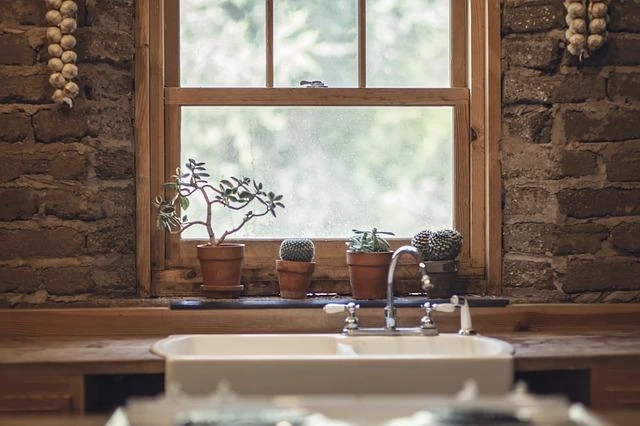Buying a home is one of the biggest financial decisions you'll make. It's important to carefully consider all the details before making an offer. Here are some tips from real estate agents on what first-time home buyers should be aware of before buying their first house:
Research The Neighborhood
When you're looking for a home, it's important to do your research. The neighborhood can be one of the most important factors in determining whether or not this is going to be a good fit for you.
First, get a feel for the area by checking out local media and seeing what people are saying about it online. Do they talk about safety concerns? What about traffic congestion? You want to make sure that your new neighborhood has all these things covered before moving in so that there won't be any surprises later down the line when living there becomes unbearable due to high crime rates or long commute times from work!
You should also check out crime data from nearby police departments—this will give an indication of how safe each part of town actually feels on average over time (or if there has been an increase recently).
Avoid Monthly Payments That Are More Than 30 Percent Of Your Income
One way to avoid being in debt is by paying off your mortgage as quickly as possible. If you have a loan with a high-interest rate, it can be tempting to keep making monthly payments even after the balance has been paid off. But if your monthly payment is more than 30 percent of your income, then it's time to reconsider whether or not this house is really worth it for you.
Another tip for first-time home buyers: don't buy something too expensive! You'll probably need some time before buying anything big enough so that everything fits—and if something doesn't fit, then there's no point in buying anything at all!
Get A Home Inspection
When it comes to buying a new home, you want to make sure that everything is up to snuff. That's why it's important that you get a home inspection done by an inspector who is qualified and has a good reputation in your area. After all, they'll be able to tell if there are any problems with the structure or electrical wiring of the house—or if any repairs need doing before moving in.
To find one, try asking friends or coworkers who have purchased homes recently. Or search online using services like Housing Inspector Directory (trusted by thousands of homeowners across America) or HomePro Inspection Services (an independent firm providing quality inspections). If all else fails, check out Craigslist where many people advertise their services for free!
Don't Take Cash Advances On Credit Cards, Don't Co-sign Or Guaranty A Loan
Don't take cash advances on credit cards: This is one of the most common mistakes first-time home buyers make. When you take out a payday loan or other type of cash advance, your lender will give you a credit card in exchange for that money. This means they can charge whatever they want to your account with no questions asked!
Don't co-sign or guarantee a loan: This can also get expensive if you're not careful about it because if something goes wrong with the property (or any other reason), then there's no one else around to help pay off their debt besides yourself—and even then it could lead back down into foreclosure territory again due to missed payments and late fees incurred by whoever owns this asset now (the seller). So do yourself a favor and don't even think twice about signing up for anything unless both parties are totally willing to commit fully towards making sure everything goes smoothly from start until finish
Consider All Costs When Budgeting
When it comes to budgeting, you'll likely have a number of expenses that don't come up at home. One of them is the cost of moving into your new home. If you're planning on buying a house, consider how much money will be spent on moving and what kind of vehicle would be ideal for the job. You'll also want to look into insurance options and make sure that there are no hidden costs associated with buying a home or renting one out long-term (like tax breaks).
Another potential expense is utilities—whether they're gas or electric—and their rates may go up depending on where you live in relation to other people living nearby as well as whether there are any special programs available such as rebates or incentives available through your local utility company itself!
Get Pre-approved For A Loan
You may think that getting pre-approved for a loan is a waste of time, but it's not. It's important to know your credit score, and then have it verified by the lender before you start shopping around for mortgages. The less money you owe on your home, the better off you'll be when it comes time to sell or refinance later on.
If you don't have enough money in savings or other investments like stocks and mutual funds (or even just cash), then getting pre-approved at least gives some sort of buffer between what lenders will see as an acceptable amount of debt at closing day versus how much they might want out of their borrowers' pockets during those early weeks after closing—and months afterward if needed.
Hire An Agent And Attorney
If you’re thinking of buying a home, it is important to hire an agent and attorney. Your agent is the person who represents you as a buyer or seller in the real estate transaction. A real estate attorney will help with legal matters related to purchasing or selling a property, like title searches and closings.
The best way to find an agent or attorney is through referrals from friends or family members who have been there before. You can also check online reviews about different agents by visiting Yelp or Google reviews for each company before contacting them directly about their services!
It's Important To Carefully Consider All The Details Before Buying Your First Home.
Home buying is a big financial decision. You should not buy a home if you can't afford it, and that's why it's important to carefully consider all the details before buying your first home.
It’s also important to consider whether or not you want kids living with you in the house; this may require additional financial planning on top of finding an affordable monthly payment structure.
We hope this guide has helped you get started on your quest to home ownership. As many people will tell you, buying a house can be an incredibly stressful and confusing experience that requires careful planning and research. But if you're armed with the right information from the start, then it's much easier to make smart choices about where to live and how much money you have for down payment costs.


